VW T-Cross vs Renault R4 - Differences and prices compared
Compare performance (150 HP vs 150 HP), boot space and price (21400 £ vs 25200 £ ) at a glance. Find out which car is the better choice for you – VW T-Cross or Renault R4?
Costs and Efficiency:
Price and efficiency are key factors when choosing a car – and this is often where the real differences emerge.
VW T-Cross has a to a small extent advantage in terms of price – it starts at 21400 £ , while the Renault R4 costs 25200 £ . That’s a price difference of around 3806 £.
Engine and Performance:
Power, torque and acceleration say a lot about how a car feels on the road. This is where you see which model delivers more driving dynamics.
Both models deliver identical power – 150 HP each.
In acceleration from 0 to 100 km/h, the Renault R4 is slight quicker – completing the sprint in 8.20 s, while the VW T-Cross takes 8.40 s. That’s about 0.20 s faster.
There’s also a difference in torque: VW T-Cross pulls barely noticeable stronger with 250 Nm compared to 245 Nm. That’s about 5 Nm difference.
Space and Everyday Use:
Whether family car or daily driver – which one offers more room, flexibility and comfort?
Both vehicles offer seating for 5 people.
In curb weight, VW T-Cross is to a small extent lighter – 1267 kg compared to 1485 kg. The difference is around 218 kg.
In terms of boot space, the VW T-Cross offers barely noticeable more room – 455 L compared to 420 L. That’s a difference of about 35 L.
When it comes to payload, VW T-Cross barely noticeable takes the win – 480 kg compared to 443 kg. That’s a difference of about 37 kg.
Who wins the race?
The Renault R4 proves to be wins solidly and therefore becomes our DriveDuel Champion!
Renault R4 is the better all-rounder in this comparison.
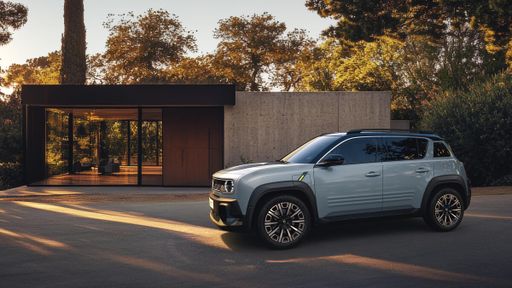
Renault R4
Costs and Consumption
View detailed analysis
Engine and Performance
View detailed analysis
Dimensions and Body
View detailed analysis
VW T-Cross
The VW T-Cross turns everyday practicality into a style statement, offering a roomy-feeling cabin, clever storage and playful design that suits town life and family duties alike. On the road it's composed and relaxed, rewarding buyers who want the raised seating and confident presence of an SUV without the weighty compromises.
details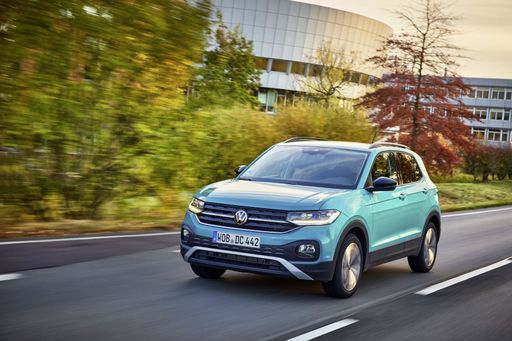
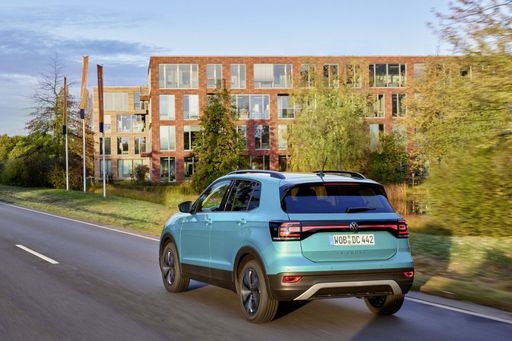
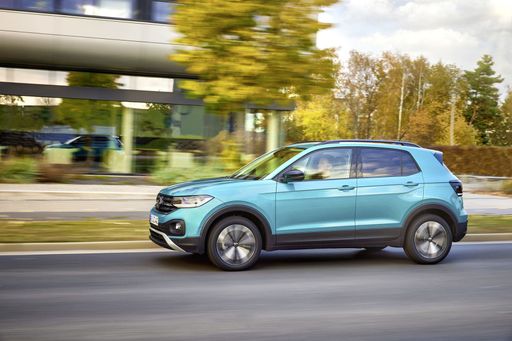
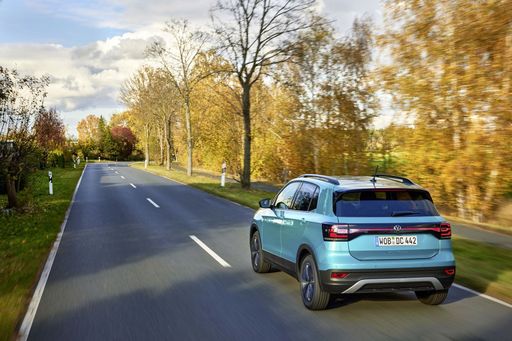
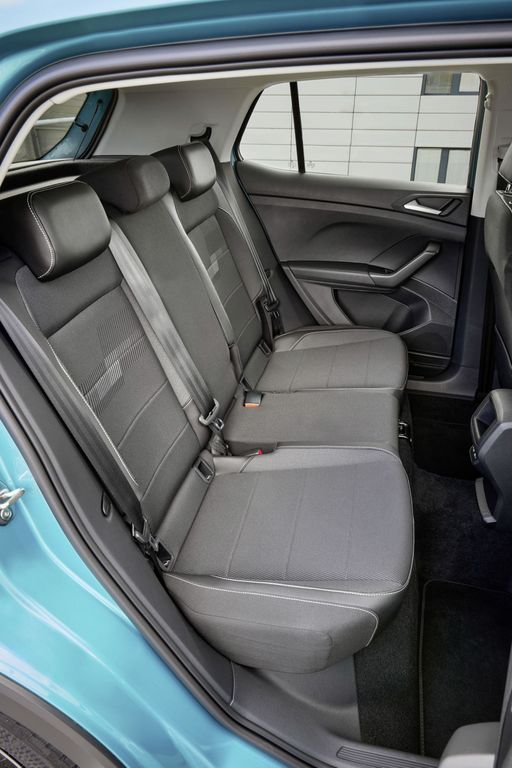
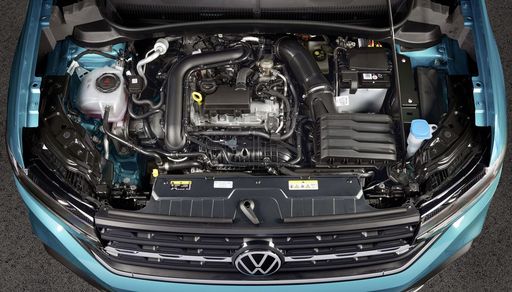
Renault R4
The Renault R4, affectionately known as the "R4," is a quintessential symbol of French automotive simplicity and practicality. This classic compact car, originally introduced in the early 1960s, won over numerous enthusiasts with its versatile design and dependable performance. Its no-frills charm and robust build made it a beloved choice for rural drivers and city dwellers alike, cementing its status as an iconic piece of automotive history.
details
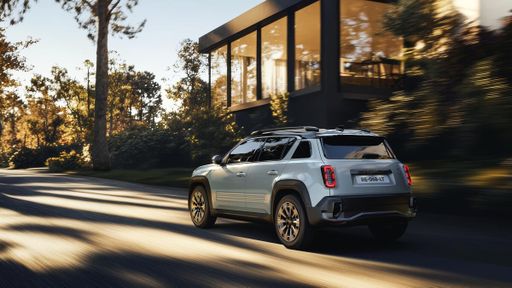
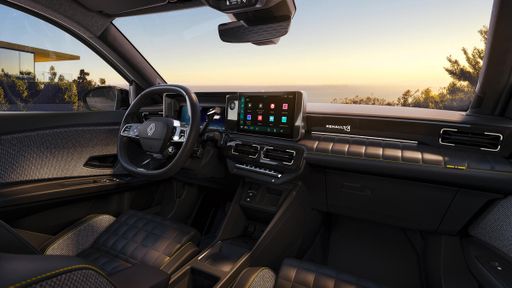
Costs and Consumption |
|
|---|---|
|
Price
21400 - 32000 £
|
Price
25200 - 31200 £
|
|
Consumption L/100km
5.4 - 6 L
|
Consumption L/100km
-
|
|
Consumption kWh/100km
-
|
Consumption kWh/100km
14.2 - 15.1 kWh
|
|
Electric Range
-
|
Electric Range
308 - 409 km
|
|
Battery Capacity
-
|
Battery Capacity
40 - 52 kWh
|
|
co2
124 - 136 g/km
|
co2
0 g/km
|
|
Fuel tank capacity
-
|
Fuel tank capacity
-
|
Dimensions and Body |
|
|---|---|
|
Body Type
SUV
|
Body Type
SUV
|
|
Seats
5
|
Seats
5
|
|
Doors
-
|
Doors
5
|
|
Curb weight
1267 - 1338 kg
|
Curb weight
1485 - 1537 kg
|
|
Trunk capacity
455 L
|
Trunk capacity
420 L
|
|
Length
-
|
Length
4144 mm
|
|
Width
1784 mm
|
Width
1808 mm
|
|
Height
-
|
Height
1552 mm
|
|
Max trunk capacity
-
|
Max trunk capacity
1405 L
|
|
Payload
463 - 480 kg
|
Payload
410 - 443 kg
|
Engine and Performance |
|
|---|---|
|
Engine Type
Petrol
|
Engine Type
Electric
|
|
Transmission
Manuel, Automatic
|
Transmission
Automatic
|
|
Transmission Detail
Manual Gearbox, Dual-Clutch Automatic
|
Transmission Detail
Reduction Gearbox
|
|
Drive Type
Front-Wheel Drive
|
Drive Type
Front-Wheel Drive
|
|
Power HP
95 - 150 HP
|
Power HP
122 - 150 HP
|
|
Acceleration 0-100km/h
8.4 - 11.3 s
|
Acceleration 0-100km/h
8.2 - 9.2 s
|
|
Max Speed
-
|
Max Speed
150 km/h
|
|
Torque
175 - 250 Nm
|
Torque
225 - 245 Nm
|
|
Number of Cylinders
3 - 4
|
Number of Cylinders
-
|
|
Power kW
70 - 110 kW
|
Power kW
90 - 110 kW
|
|
Engine capacity
999 - 1498 cm3
|
Engine capacity
-
|
General |
|
|---|---|
|
Model Year
2024 - 2025
|
Model Year
2025
|
|
CO2 Efficiency Class
D, E
|
CO2 Efficiency Class
A
|
|
Brand
VW
|
Brand
Renault
|
What drive types are available for the VW T-Cross?
The VW T-Cross is offered with Front-Wheel Drive.




